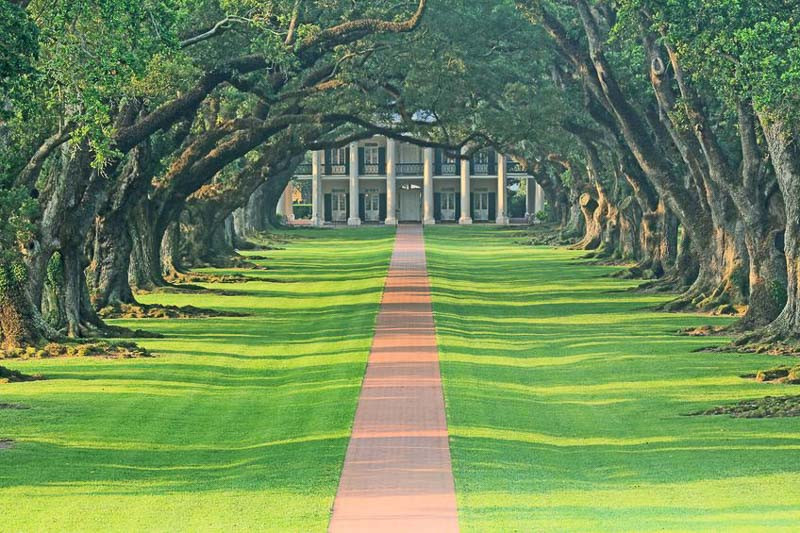Louisiana Native Plants
Louisiana, with its diverse ecosystems ranging from coastal wetlands to pine savannahs, hosts an array of native plants that thrive in these unique conditions.
- The coastal marshes and swamps are home to plants like the Bald Cypress (Taxodium distichum), adapted to waterlogged, saline conditions. Other marsh natives, the vibrant Louisiana Irises (including Iris fulva, Iris hexagonal, or Iris brevicaulis), bring color to these wetland landscapes.
- Moving inland, Longleaf Pine (Pinus palustris) savannahs host an understory of Wiregrass (Aristida stricta) and various wildflowers, including the state wildflower, the Louisiana Indian Paintbrush (Castilleja coccinea).
- The state’s bottomland hardwood forests are dominated by trees like the Southern Magnolia (Magnolia grandiflora) and Sweetgum (Liquidambar styraciflua). Beneath these, flowering shrubs such as the American Beautyberry (Callicarpa americana) can be found.
- Louisiana’s prairies, although largely converted to other uses, originally hosted a diverse mix of grasses and flowering plants, such as the Purple Coneflower (Echinacea purpurea) and Black-eyed Susan (Rudbeckia hirta).
These native plants play a vital role in Louisiana’s ecosystems, providing food and shelter for local wildlife, maintaining soil health, and withstanding the state’s varied climate conditions. Incorporating these species into your landscape not only supports Louisiana’s unique biodiversity but also conserves water and ensures a resilient garden attuned to the local environment. Plus, native plants require less maintenance, as they’re naturally suited to the local conditions.

